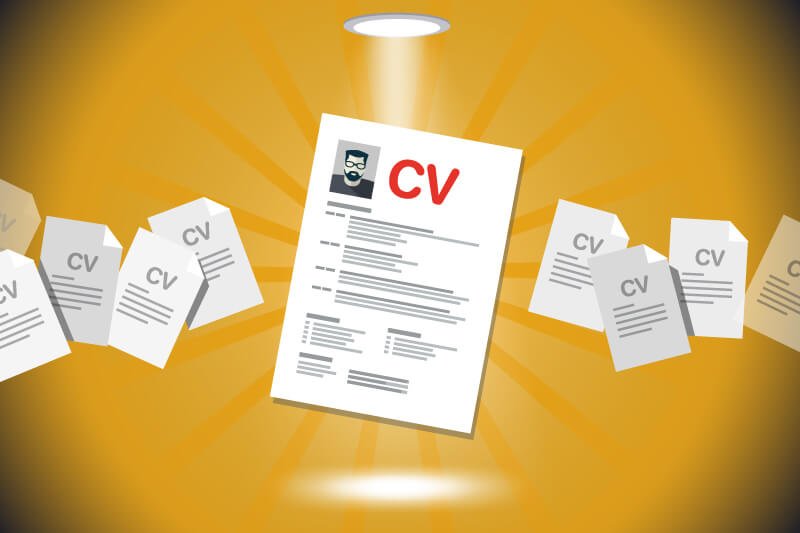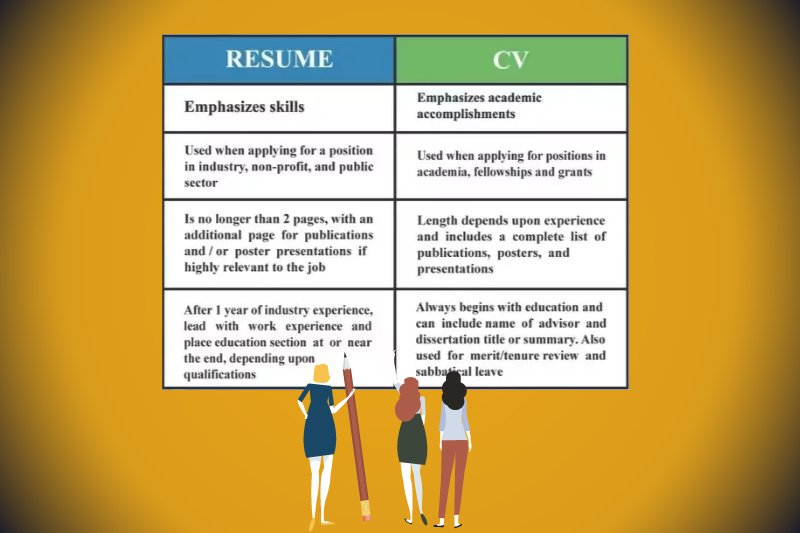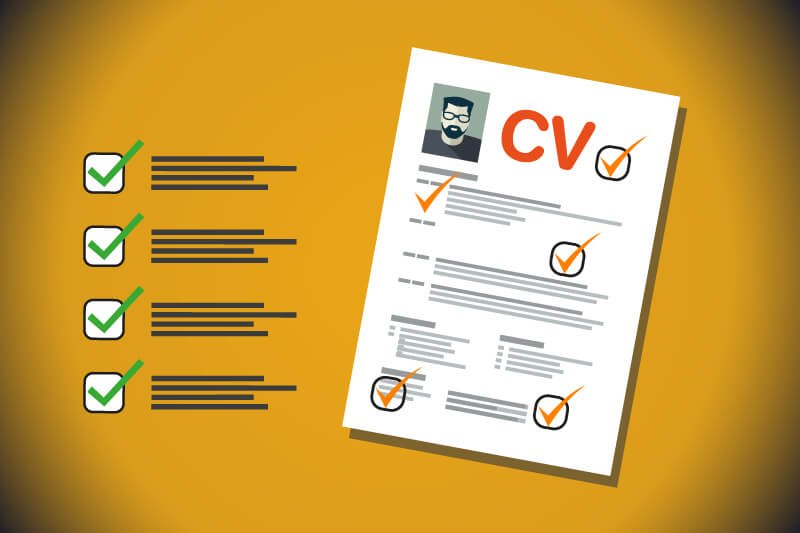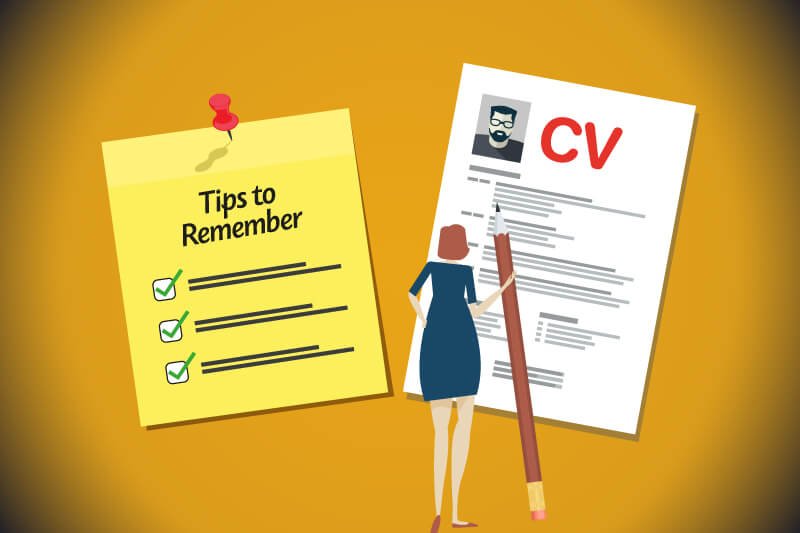
How to Write A CV That Creates a Lasting Impact
This article explores on the prominence of CVs in job procurement and has been written to provide guidance to aspiring candidates, in the pursuit of lucrative employment.
Table of Contents
- What’s a CV by the way?
- Understand the Differences and Stop Mixing Resumes and CVs
- What constitutes a CV and How Can I Perfect It?
Curriculum Vitae or CV is considered and in fact, is the first step to landing you a job.
More than often we come across people who are disheartened that they could not get a job they were so hopeful for or sometimes we overhear that some did not even get called in for an interview. When it starts happening with us, we start relating to the dilemma and are lost in perplexity as to what happened that did not land us the job?
"The interview went so well but I did not get the offer. Gosh, I am disappointed. I thought I was the perfect fit!"
“I have been applying to several places but I’m not even receiving calls or any emails, what’s the matter?”
“I thought my CV was remarkable. I wonder why I have not been approached as yet.”
Sure, we all have our ups and downs and life is itself a continuum of challenges and issues but if we are repeatedly facing failures in any aspect, it is about time that we start with analyzing ourselves. Unemployed people in the pursuit of jobs,especially in the major cities of Pakistan such as Karachi, Lahore, Islamabad, Peshawar, Quetta and other cities, are every so and often bitter about the market saturation and the lack of employment prospects overall, obscure that they have not been focusing on how a small habit of them could surmount to colossal changes.
The purpose of this blog is to provide insight into the ordeal surrounding a CV which creates a lasting impact on the recruiter and to acquaint them of the possible mistakes they are making on a regular basis which is acting as a barrier to their job prospects.
What’s a CV by the way?

A CV is an abbreviation for Curriculum Vitae which translate from Latin to ‘course of life’. As the meaning suggests, a CV is supposed to give a comprehensive and thorough outlook on your academic and professional achievements and experience while listing down your skills, objectives and further prospects.
It is not uncommon to mix CVs and resumes together. They are usually used interchangeably by the hoi polloi but the recruiters are well apprised of the differences and this is often the factor that many people do not even secure an interview on call, let alone in person.
A majority of the population is not bothered about, let alone aware, of the differences between a professional resume and a professional CV which is phase one to acquiring the job, so it comes off as no surprise that they remain jobless for longer periods of time.
Understand the Differences and Stop Mixing Resumes and CVs

Resume was first used by the father of palaeontology, Leonardo da Vinci and translates from French to ‘to sum up’. A CV, as mentioned above, is borrowed from the Latin expression ‘my course of life’. Accordingly, resumes comprise of the same details which are present in a CV but in a shorter version.
The main differences between a CV and a Resume depend on:
- Length
- Purpose
- Layout
A CV will cover everything from the person’s education to work experience to skills to extracurricular activities to hobbies to detailed job descriptions and everything that summarizes the life of a person, regardless of the job the person is applying for. A CV can be utilized for applying to academic research positions or for generally giving an outlook as well. A single CV can be used to apply to a range of jobs since the CV contains all of the information from the person’s life. Therefore, a CV can go beyond two pages in length (by pages I am referring to an A4 sized document).
A Resume will contain brief and relevant details and will cut down on any data that does not pertain to the nature of the job the person is applying for. As per its brief nature, a resume is a one-pager at most and can be altered to suit the company's requirement.
If you're sceptical about my words then you can consult from any resume writing service or any professional CV writing service and put yourself at ease.
Since case in point is CVs and not resumes, in the next section; I’ll be exploring on guidelines for writing a CV which definitely warrants you an interview at the least and does not escape the eye of the recruiter. If you’re at it, try consulting some MBA thesis writing service or some academic writing service for they can guide you better in terms of writing.
What constitutes a CV and How Can I Perfect It?

A CV may appear to you as a one or two pager but look closely and you will observe how every peculiar detail requires attention and can bring about either a positive or a negative outcome.
While defining all the elements contained in a CV, I shall be pointing out common mistakes and blunders that people often overlook when crafting their CVs.
So let’s get down to it!
-
Consistency and Formatting

Amongst the paramount aspects of all, it is crucial to be consistent in your CV. Margins, formatting of all kinds, fonts, the spacing between paragraphs and sections are to be consistent. Sure, your CV is supposed to be highly detailed but if you end up making your CV look like a bunch of ants swarming, your CV will definitely end up in the ‘no pile'. You need to make your CV attractive in a manner that it does hurt the eyes of the recruiter and provides with ease in reading through.
Colours and font should be hinting of professionalism because, in a majority of the cases, your CV will most probably be printed in black and white. It needs to give a professional flare instead of a goofy portfolio. Margins and spacing should be such that they symmetrical and even.
The CV should give a neat and tidy outlook at the very minimum because asymmetry and disorderliness in your CV may be the first step to tarnishing your potential job prospect.
Chronologically speaking, you should be following this order when devising your CV:
- Title and Name
- Personal Information
- Career Objective, Short Statement, CV Summary
- Work Experience
- Qualifications
- Skills
- Awards and Achievements (may vary)
-
Personal Information

Personal information of the person embodies the following but may vary according to requirement and region;
- Name
- Contact Details
- Email Addresses
- LinkedIn Profile (other portfolio links may be mentioned according to requirement)
- Residential Address
- Marital Status (may vary)
- Place of Birth (may vary)
- Photo (may vary)
Having a LinkedIn Profile is gaining a lot of traction nowadays and many recruiters often visit the LinkedIn profiles for verification.
This section is something which everyone is aware of, but, guess what? People make mistakes in this section which often results in the recruiter being unable to contact the person in case they consider calling the person.
Updated and accurate information is the most crucial aspect of all. You finally get shortlisted but the recruiter cannot contact you. Tough luck or big blunder?
If you are applying as a Graphic Designer or an Animator, it would be highly beneficial to mention the link of your online portfolio, thereby giving recruiters the chance to examine your skills and infer your experience in the field overall.
Photos in CVs were previously not required but currently, people tend to adjust their pictures as well. The addition of photos depends on the nature of the industry you are applying for and the organization to which you’re applying to. Even if you do add a picture, you need to make sure that the photo presents you in a professional and corporate manner as opposed to your Facebook profile picture.
Marital Status and Place of Birth also vary according to geographic regions and organizational requirements. With respect to Pakistan, married people especially women are inclined towards intimating their marital status. Place of Birth can be cited in case the employee is applying overseas or out city.
-
Short Statement

A personalized short statement which lists your skills and career objectives is vital to enticing your reader as it will imply your nature and aims. Recruiters tend to be critical of short statements while determining the seriousness of the prospective employee because they do not wish to shortlist someone who is not resolute in their aims.
If you have work experience, mention it in your short statement. If not, highlight your qualifications which make you a better prospective employee in comparison.
The statement needs to be extremely relevant to the field and the organization you are applying to and mention how your skills, qualifications and work experience (if any) provides you leverage as opposed to the other crowd.
-
CV Summary (may vary)

While a majority of the workforce makes use of the short statement and does not add this section, a CV Summary can encapsulate your entire professional career especially in fields where all-inclusive job descriptions are not required such as in graphic designing.
-
Work Experience

Coming down to the big bad Hulk; the work section. What interests the employers more than your education and your skills is your work experience. If you do not have any prior work experience then you can jump to the Education section immediately (see next) but if you do, make a virtue of it.
Your work experience is to be listed in reverse chronological order beginning from your most recent experience and ending towards your first job. Meticulous job descriptions are to be penned down in impeccable wordings and grammar.
Pro tip: use action verbs instead of nouns. Rather than writing ‘recording employee leaves on HRM Software’, you should go for ‘recorded employee leaves on HRM Software’. A slight change in grammar but an epic impact on the recruiter.
Unbeknownst to many, ‘key achievements' have a profound influence on the recruiter. It gives an expression that during the person's period of tenure at a particular place, they were able to bring about some big and positive changes and add value to the organization, plus, that they are confident about articulating it in an attractive statement. So do not undermine this tip and definitely mention it when you’re composing your CV. If you worked in the academics and provided thesis writing help or thesis writing services, be sure to include it.
-
Qualifications

Your qualifications and your education are next of importance after your work experience, and in case you do not have any work experience, they serve as the prime testing criteria.
If you are a fresher with no prior work experience, best to stretch your qualifications in an impressive manner. Mention your grades if they are above average. Mention any dissertations or research papers if you have written any. At the bare minimum, mention your area of education and your subjects. You can include extracurricular academic activities and vocational courses as well to display your qualifications.
Include all short term certificate courses or diplomas you have done, even seminars and workshops which you may feel can be helpful.
-
Skills

Skills can be of miscellaneous kinds but if we speak about a CV, then you need to cite professional skills which render you as an eligible candidate. If your qualifications and work experience do not suffice, you can try to fill the gap by laying emphasis on your professional skills. Avoid using generic phrases such as 'team player', 'hardworking' and 'multitasker'.
Professional skills comprise of hard skills and soft skills both. Hard skills such as bookkeeping or graphic design and soft skills such as communication or leadership; they all matter on a CV. Your writing skills can land you a job at a PhD thesis writing service, who knows?
Additional Tips to Remember When Crafting Your CV

- Avoid spelling mistakes of all kinds. They exude carelessness to the highest degree.
- Do not send the same CV everywhere. Scrutinize the requirements of the organization and tailor your CV according to it.
- Keep your CV extensive but brief. You do not want to bore the recruiter.
- Be sure to consult any skilled professional before finalizing your CV or check for a CV Writing Service in Pakistan for information.
- Do not lie on your CV. Recruiters are smart enough to catch any lies mentioned.
Conclusion
Times have changed and the competition is tough. Do not take your CV lightly as it is the first step to acquiring a job. It is best to follow tips and guidance and gain feedback before you finalise your CV and send it to apply for jobs. Best wishes in the job search!
OUR SUBJECT AREA
We specialize in a lot of subjects and offer our services in most of the academic categories.
Copyright © 2024 thesiswritinghelp.com.pk All Rights Reserved. Privacy Policy | Refund Policy | Terms & Conditions | Write For Us | Career | Sitemap | About Us | FAQ | Blog



















